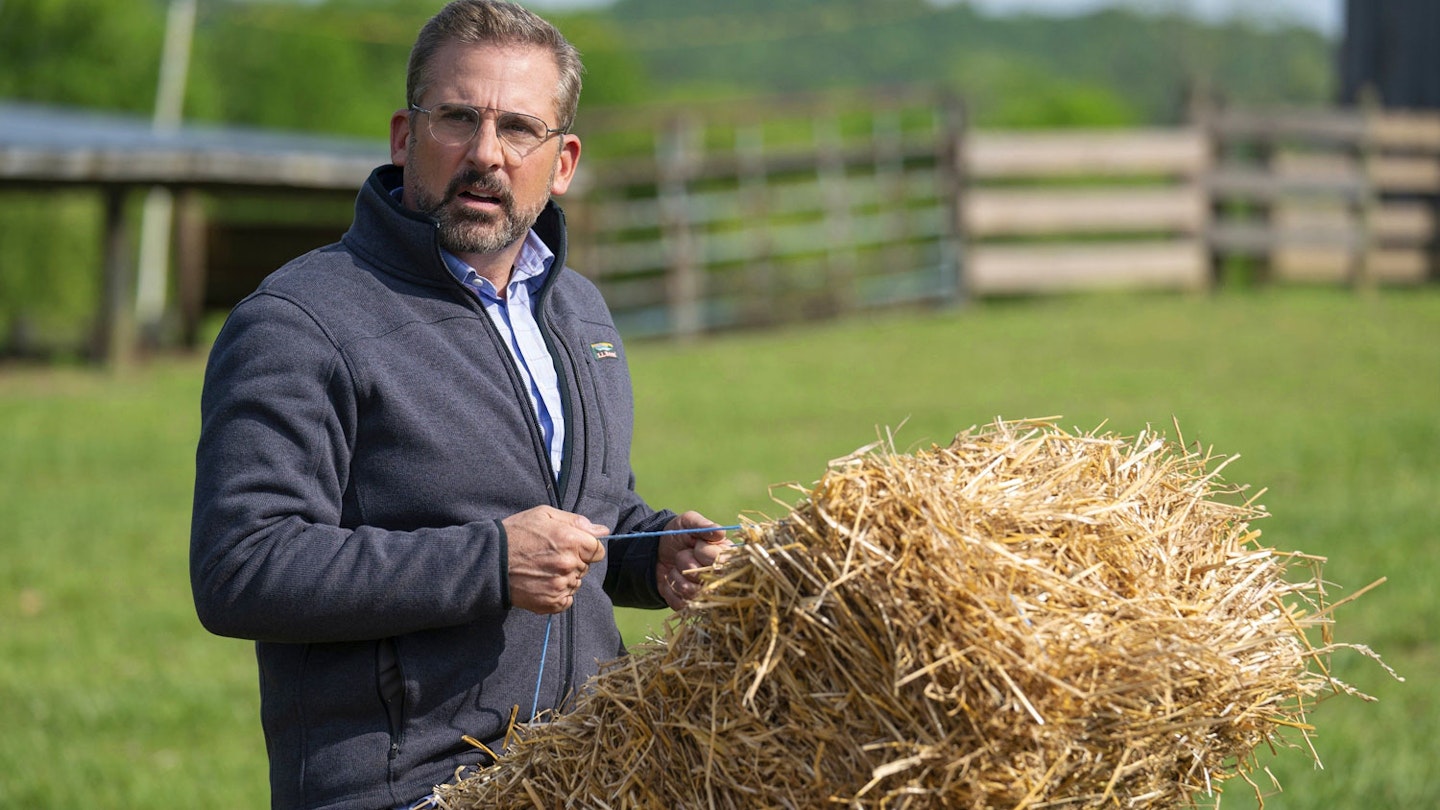Midway through Irresistible, Steve Carell’s hawkish political kingmaker describes his newest candidate with disbelieving glee. “He’s like Bill Clinton with impulse control,” he says, grinning into a phone. “Like a church-going Bernie Sanders with better bone density.” Two lines that, in their eyebrow-waggling vim, pretty much encapsulate both the strengths and deficiencies of Jon Stewart’s second film as a writer-director. Which is to say, it’s reflective of a fun, fish-out-of-water political satire that also has the occasional misfortune of feeling about as relevant to the current, pandemic-ruptured climate as, well, Bill Clinton and Bernie Sanders.
To be clear: the drastically altered circumstances of 2020 (evinced by the fact this project is now straight-to-streaming) are not the fault of Stewart or his team. But, even with deft central performances, Irresistible’s world of cartoonishly folksy Midwesterners and pampered DC power-brokers comes across as a little inert and inconsequential; a pleasant-but-slight electoral fable, from a far cosier alternate reality.
Stewart’s script pours scorn on data-obsessed political grandees, more interested in using rural voters as pawns than actually engaging with them.
Still, it’s a seductive basic premise, introduced with briskness and flair. Distraught after his role in Hillary Clinton’s 2016 election defeat, Democratic Party strategist Gary Zimmer (Steve Carell) is shown a viral video of retired Marine colonel Jack Hastings (Chris Cooper giving maximum rumpled cowboy) nobly standing up for undocumented workers. A lightbulb practically pings above his head. And soon he is in the Wisconsin town of Deerlaken mounting a mayoral campaign, getting close to the colonel’s daughter (Mackenzie Davis), and setting up a symbolic battle with an old Republican adversary, Faith Brewster (Rose Byrne).
From here, if you imagine an ebullient melding of Veep and Doc Hollywood, you will not be far off the feel of the film’s first half. Laughs flow, and Stewart’s script pours scorn on data-obsessed political grandees, more interested in using rural voters as pawns than actually engaging with them.
A big part of this appealingly breezy, sitcom groove comes from Carell (channelling an uptight, more cynical Michael Scott). And Byrne, too, ignites the film with her affectless put-downs and salutatory face-licks. But, as the action progresses, the backwater atmosphere these two DC sharks have been released into can feel a touch overcooked (would even the smallest of small towns really still have dial-up internet?).
Moreover, by the third act, there are ever-broader moments of satire (including an iffy scene featuring a paraplegic prospective campaign donor with a hydraulic exoskeleton) that feel like SNL sketches, somewhat uncomfortably jammed into the story. There is partial justification for some of these tonal gear-changes — a subversive climactic rug-pull delivered with a finger-snapping, ‘The Aristocrats!’-style flourish — but any genuine surprise is at the expense of emotional stakes. And the net feeling is of a film that is a tactically astute marginal victory when, given the names involved, it should have been a landslide.
